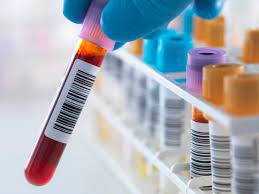Most common causes of a high amylase

- Acute pancreatitis
- Pancreatic or bile duct blockage
- Cholecystitis and viral hepatitis
- Cancer of the pancreas, ovaries, or lungs
- Perforated ulcer or intestinal obstruction
- Infection of the salivary glands (such as mumps) or a blockage of the salivary gland duct
- Macroamylasaemia
- Tubal pregnancy (may have burst open).
A normal blood amylase is 30-110 u/L. A very high level (it can be in the 1000s) is almost always due to acute pancreatitis.
High amylase levels can indicate a problem with the pancreas or salivary glands, or another medical conditions. But there are many other causes of high (not usually very high) amylase. We will now go through them in more detail.
High amylase levels can indicate a problem with the pancreas or salivary glands, or another medical conditions. But there are many other causes of high (not usually very high) amylase. We will now go through them in more detail.
Pancreatic Conditions
-
Acute pancreatitis: Inflammation of the pancreas can lead to a surge of amylase into the bloodstream
-
Chronic pancreatitis: Long-term inflammation of the pancreas can also cause elevated amylase levels
-
Pancreatic cancer: Tumours in the pancreas can disrupt normal function and lead to increased amylase
-
Pancreatic duct blockage: Obstructions in the pancreatic duct can cause amylase to build up and be released into the bloodstream
-
Pancreatic pseudocyst: A collection of fluid near the pancreas.
Salivary Gland Conditions
- Salivary gland Infections (e.g. mumps): Inflammation of the salivary glands can cause amylase to be released into the bloodstream
- Salivary gland blockage: Blockages in the salivary gland ducts
- Salivary gland tumours: Growths in the salivary glands.
Other Conditions
- Surgical
- Obstruction to the GI tract: Blockages in the intestines can cause amylase to be released
- Perforated ulcer: A hole in the stomach or duodenum
- Cholecystitis: Inflammation of the gallbladder
- Ruptured ectopic pregnancy: A pregnancy outside of the uterus.
- Medical
- AKI/CKD: Impair the body’s ability to clear amylase, leading to higher levels
- Diabetic ketoacidosis (DKA)
- Macroamylasaemia: A rare condition where amylase molecules are abnormally large and don’t get filtered out by the kidneys as efficiently
- Certain medications: opiates, aspirin, diuretics, oral contraceptives, corticosteroids, and some psychiatric medications can cause an increase in amylase levels
- Other: alcohol, eating disorders (anorexia and bulimia).

